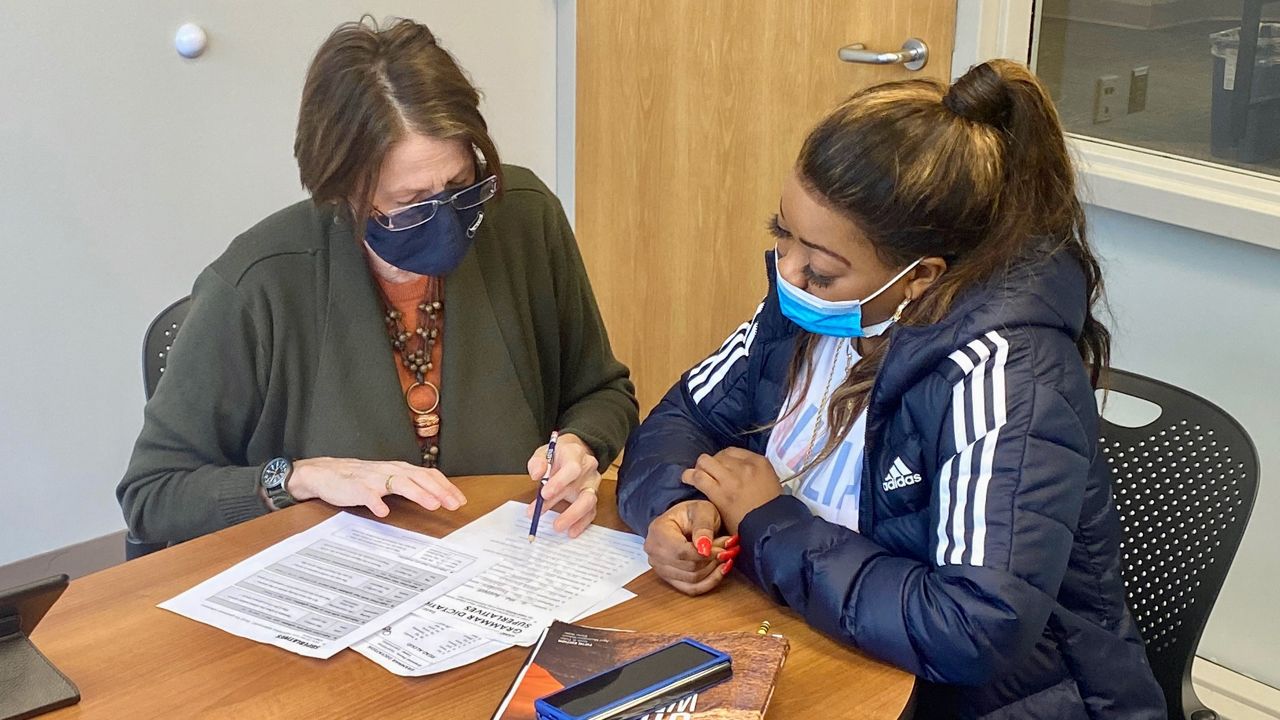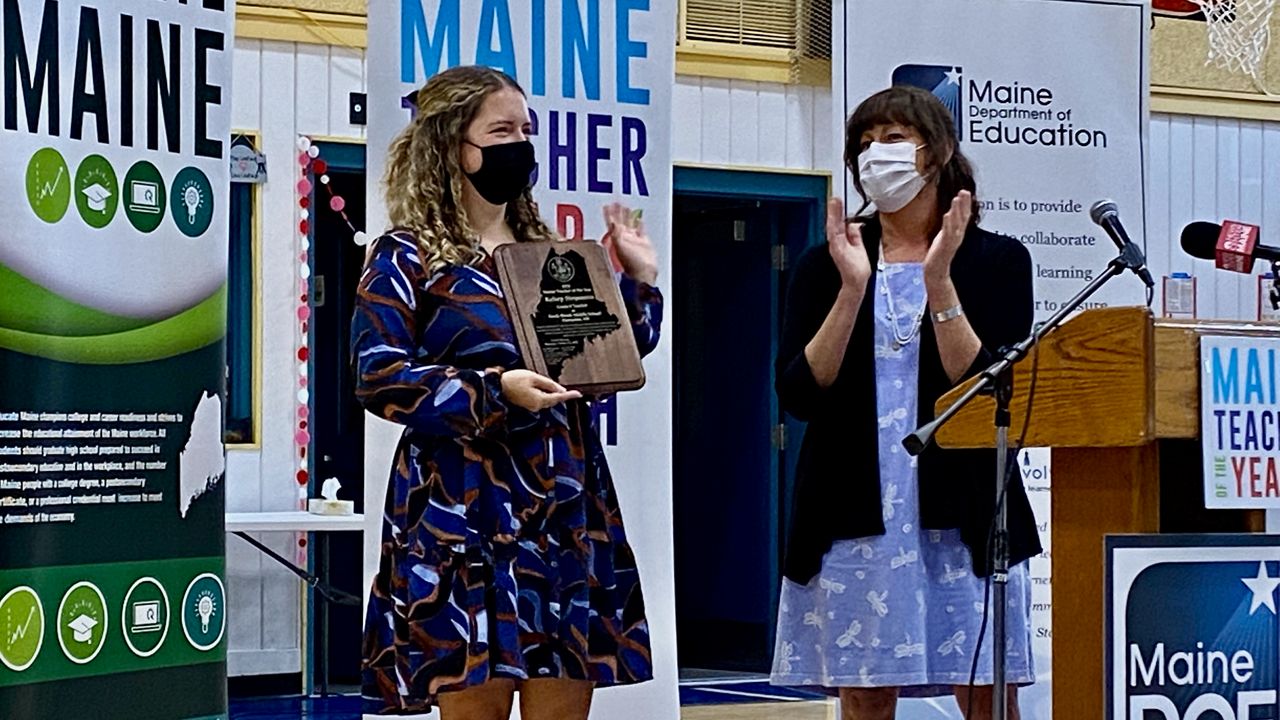Gretta Manzumbila, a student at Southern Maine Community College, came to the United States 11 years ago, after growing up in the Democratic Republic of the Congo. She speaks passable English, but to realize her dream of becoming a nurse she said she will need a much stronger command of the language, including complex medical terminology.
“I have difficulty learning a lot of stuff,” she said.
But a new lab at the college aims to help Manzumbila, 33, and other students like her. The Lisa Gorman Language Learning Center, located inside the library of the college’s learning commons, builds on a concept that has been growing at the college for about five years now.
Gorman, who co-founded the Foundation for Maine’s Community Colleges 11 years ago, said she saw firsthand how much new Mainers can struggle when they don’t know the language. Her daughter-in-law, Rosa, emigrated to the United States almost 12 years ago after marrying Gorman’s son, Shimon Cohen Galva. While Galva spoke fluent Spanish, and could converse with his wife well at home, Gorman quickly came to understand that is a luxury some new Mainers don’t get.
“A lot of people don’t have that support when they go home,” she said.
At first, that support took the form of a single staff member at the college serving as a liaison, Gorman said, networking within the college’s departments to find tutors and help non-native English speakers find support outside the college through agencies in the greater Portland area.
The new center, paid for by Gorman’s family and friends as a gift in her honor, now will include other college instructors working one-on-one with students as tutors. Soni Reese, chair of the department of developmental English and global languages, who serves as coordinator for the lab, said bridging the language gap is critical to helping students succeed.
“There is a barrier there that makes them not achieve their potential,” she said.
Reese said about 10 to 20 students are using the lab at any given time. It can be as simple as a one-off visit to help understand applications or assignments, and as complex as regular visits for ongoing English lessons.
In some cases, such as Manzumbila’s, English language instruction goes beyond the basics to include terminology related to a profession.
“It’s not just to pass the courses. It’s to prepare them for their careers,” Reese said.
Priscilla Nicholson, an ESL tutor, said the lab officially opened earlier this year, but was virtual at first before using the physical space in September. Meeting with her students in person has made a big difference, she said.
“You feel more comfortable when you’re sitting with someone,” she said.
Nicholson said she has seen the students open up over time. She described their moods now compared with over the summer as “more conversational, a little more relaxed, a little less anxiety.”
Manzumbila takes one-on-one classes with Nicholson twice a week, and said it is helping with her studies. She said she began working with the lab as soon as she signed up for nursing classes at the college, and credits the lab with helping her understand assignments better.
“It helped me very much,” she said.
Another of the lab’s students, Nsevilo “Helen” Shavani, 49, is a native of Angola and has lived in the United States for four years. She was a physical therapist in her home country and is now studying health sciences at SMCC. She speaks Portuguese, French and Lingala, but found in English she struggled with her classwork before taking classes through the lab.
The lab is producing results for Shavani. She said she had a 72 in her medical terminology class before getting tutoring at the language lab. Now, she said, she has a 90 in the same class.
“It helps me with my discussions and assignments,” she said.






